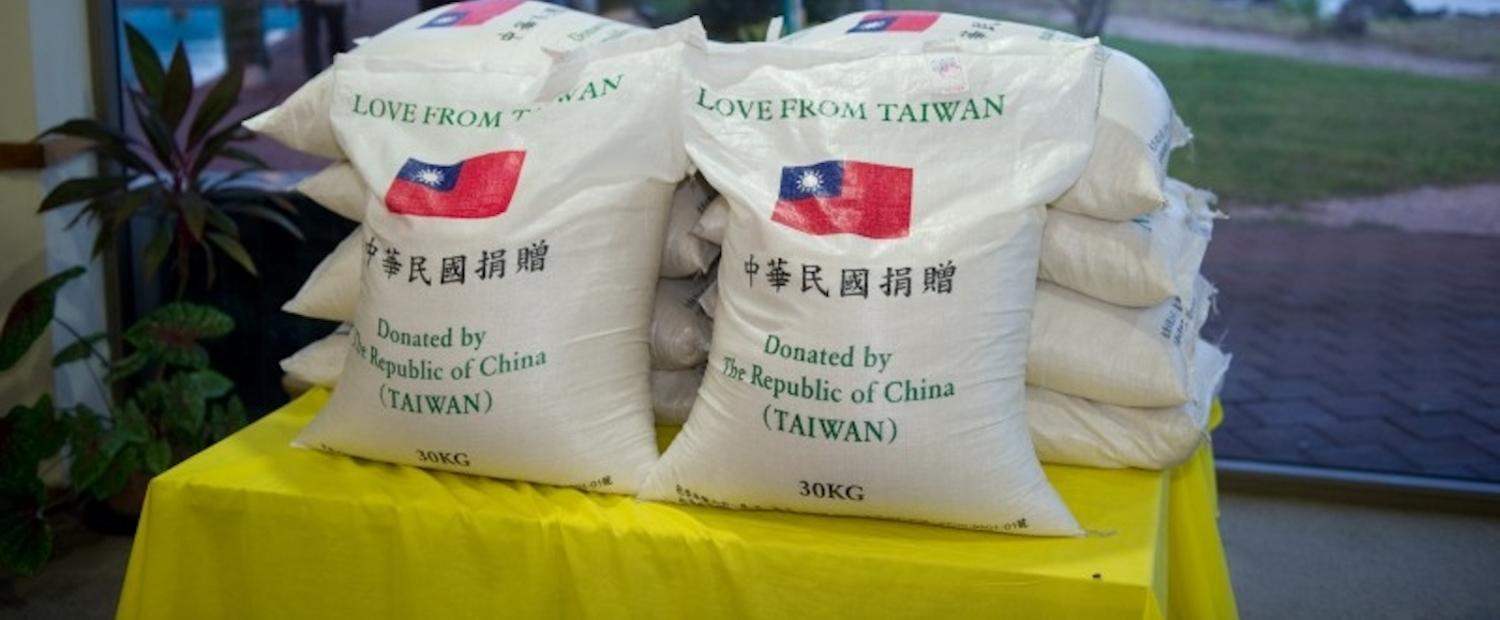In July, the Marshall Islands signed a visa-free entry agreement with Taiwan, a clear testament to the strong diplomatic ties that Taiwan has achieved with some Pacific states in recent years.
However, the competition for the Pacific Islands is far from settled. Four countries have switched diplomatic ties from Taiwan to China in in two years, and with both Taiwan and China increasing their aid presence in the Pacific, tension is rising. One third of Taiwan’s remaining diplomatic backers are in the Pacific Islands, and pundits are wondering who will be the first to jump ship.
For now, Taiwan’s six Pacific diplomatic supporters – Kiribati, the Marshall Islands, Nauru, Solomon Islands, Tuvalu and Palau – have remained relatively steadfast and committed, a product of the personal and intimate aid programs that distinguish Taiwan from China.
Yet with domestic support for President Tsai Ing-wen’s foreign policy closely linked with the results of local elections in November, should her Democratic Progress Party lose seats, Taiwanese support to the Pacific may be less forthcoming in years ahead.
People-to-people relationships
By volume, China’s contribution to the Pacific region far outstrips that of Taiwan. Since 2011, China has spent US$1.26 billion in aid to its diplomatic backers in the Pacific, with its projects on average nine times larger than those of Taiwan. In comparison, Taiwan has spent $224.03 million. Given the allure of such generosity, it is tempting to assume that China will soon siphon Taiwan’s Pacific friends.
However, while working on the Lowy Institute’s Pacific Aid Map, we found that on a per capita basis, because the China-supporting countries are so much larger than the countries that recognise Taiwan, Taipei actually spends $237 to Beijing’s $108, more than twice as much. When isolating just Chinese grants, which make up about 30% of total aid investments, and comparing like-for-like, this ratio shoots up to seven to one.
With both Taiwan and China increasing their aid presence in the Pacific, tension is rising.
Taiwan also works to offset the China appeal by working with Pacific partners in different ways. Recognising that it will likely never eclipse the monetary value of Chinese aid, Taiwan has instead identified key areas of Pacific development where its smaller contributions can still carry clout. Its projects targeting sectors such as agriculture, health and industry are less captivating than the large-scale construction projects delivered by China, but they emphasise Taiwan’s advantage: people-to-people relationships.
One example is Taiwan’s horticultural projects. Poor soil, a lack of arable land and severe droughts have led to low vegetable production and dependence on imported food across the Pacific. This has in turn led to high levels of non-communicable diseases such as obesity, vulnerability to global market fluctuations, and difficulty in developing sustainable livelihoods for locals. Taiwan’s Horticulture Projects have sought to increase the sustainable productive capacity of these local populations through training workshops, internships and extended foreign missions by envoys.
This increased exposure by local Pacific communities to Taiwanese emissaries is a key element driving Taiwanese aid. The working relationships that arise create goodwill and fealty that can only come about through prolonged cooperation. By comparison, China’s projects, which have attracted criticism for both importing Chinese workers and their reclusive nature, do not bring the same soft-power touch.
For now, Taiwan's strategy appears to be working. Solomon Islands has lauded its relationship with Taiwan (though there are murmurs it may be considering a swap), stressing Taiwan’s care for the well-being of its citizens, which the people of the Solomons have worked to reciprocate. Kiribati has expressed gratitude for Taiwan’s assistance while openly advocating for Taiwan’s meaningful participation in international discussions. Palau says the shared of principle of freedom is the basis of its close ties to Taiwan.
Such warm sentiment is not always evident towards China.
Taiwan, with a caveat
Australia is anxious about Chinese encroachment in the Pacific. Yet there is little recognition of the role Taiwan’s aid policies play to block Chinese aid and, with it, potential encroachment.
However, these aid programs may be under threat internally. Taiwan’s local elections are fast approaching and the Tsai administration has suffered in opinion polls as citizens’ passion for the independence movement and foreign affairs begins to fatigue. Indeed, assistance to the Pacific has been poorly received by constituents who perceive it as a waste of money despite the fact that it has allowed Taiwan to secure diplomatic support at a far lower cost than China.
The upcoming elections consequently have underlying international importance and will be watched closely in Beijing, in the Pacific and also by the broader international community. If Taiwan’s aid commitments begin to decrease, it may encourage China to step up its Pacific presence.


